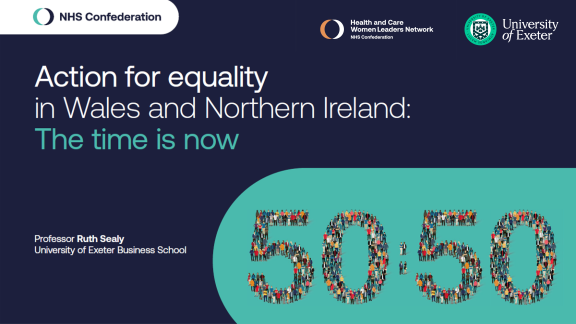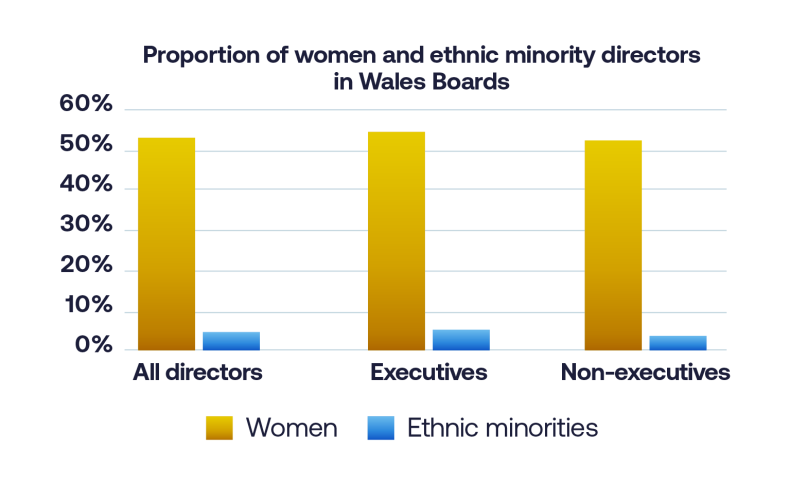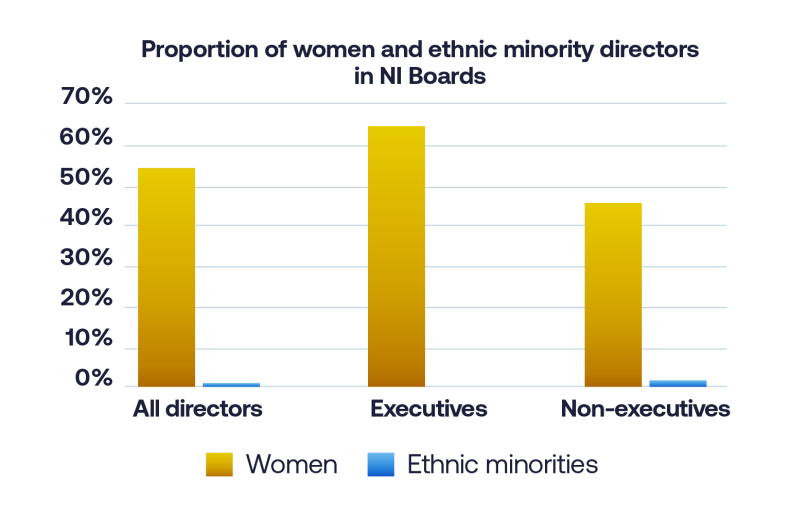Action for equality in Wales and Northern Ireland: the time is now

The NHS Confederation’s Health and Care Women Leaders Network; Welsh NHS Confederation; and Northern Ireland Confederation for Health and Social Care have jointly launched a new Action for Equality in Wales and Northern Ireland: The Time is Now report.
Who the report is for
This report is designed for NHS Confederation members including NHS chairs, vice-chairs, chief executives, board secretaries, executive and non-executive directors across health and care in Wales and Northern Ireland; and representatives of healthcare government bodies.
Purpose
The report set out to establish benchmark data for boardroom diversity across the health and care services in Wales and Northern Ireland, focussing on gender parity and other protected characteristics. Twenty boards were involved, representing health and care across Wales (x12) and Northern Ireland (x8), with a number of interviews taking place.
The findings
Information and data on board composition and diversity are not easily accessible. Detailed and disaggregated data on board composition, including on major dimensions of diversity, should be publicly available.
Data was analysed by assumed gender, assumed ethnicity, nation and ‘power roles’. In Wales, NHS boards have each individually met the European Commission (EC) definition of gender balance (with at least 40 per cent of each gender present) and at a national level the percentage of black, Asian and minority ethnic directors is representative of the population.

In Northern Ireland, although at a national level, figures for board directors are gender balanced, only two of the eight boards hit the EC definition. The remaining six are split evenly between having excess men and excess women. Seven of the eight boards are entirely white.

The research found that although the balance of boards in Wales and Northern Ireland represents a positive starting point – there is more to be done to ensure that this is not tokenistic, and that the benefits of diverse boards are fully realised.
Key recommendations
The report makes a series of recommendations, designed to drive effective decision-making, system transformation and continuous improvement.
It calls on healthcare leaders in both Wales and Northern Ireland to proactively embed a strategic approach to diversity and inclusion within boards, and the governance process. This needs to be both inclusive and measurable, with a clear commitment from leaders at the top.
The benefits are clear – diversity on boards leads to better, more effective decision-making; helps to retain and develop talent; and leads to better patient outcomes, through representing the communities we serve.
The report makes a number of key recommendations:
- Ensure that data on the diversity of board composition of healthcare boards in Wales and Northern Ireland is made publicly available, in an accessible format.
- Calls for a commitment from leaders to embed a more strategic approach to diversity and inclusion at board level, recognising the tangible benefits this brings. Ensure, alongside gender and ethnicity, that this considers all protected characteristics including age, religious belief, disability and sexual orientation.
- Develop effective guidance and training on good governance processes and how a unitary board functions – including clarity around roles, responsibilities, relationships and accountability – to further support embedding diversity and inclusion.
Diversity of thought, experience and expertise is critical to ensuring good governance and effective decision-making.
Note: The research was carried out between May and August 2022 and the findings reflect the board composition at that time.



